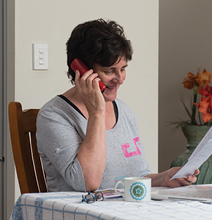The German Federal Ministry for Families, Senior Citizens, Women and Youth (BMFSFJ) organised an expert meeting on the reconciliation of care and employment in Berlin on 4-5 September 2017, on the backdrop of the proposed directive on work-life balance that includes the introduction of carers’ leave for working carers. While many innovative and promising solutions were presented, AGE addressed a reminder of the essential needs of family carers in Europe.
Informal care from the perspective of carers and international frameworks
The expert meeting looked at different dimensions of support for carers, including care leaves, financial support, flexible working time arrangements, advice and counselling. Experts from several EU member states took part in the meeting and the frameworks existing in non-EU OECD countries that also face an ageing population were reminded by Prof Yeandle of Sheffield University. Dr Birta of the family organisation COFACE-Families Europe highlighted the preliminary results of a survey among over 1,000 carers carried out over the summer: in all EU member states represented, carers expressed the same needs for supporting services, recognition, flexible working time arrangements and care leaves, training and financial support.
Good practices from different EU member States
Examples presented for care leaves included the German ‘Pflegezeit’, the Austrian ‘Pflegekarenz’, the Belgian time-credit system. The Netherlands showcased the Dutch framework for requesting flexible working time, which is much used and valued by carers. Carers Scotland presented an innovative model to work with employers to make them ‘Care positive’. The Swedish and Austrian efforts to inform, counsel and train family carers by different means were also presented. Many of the presented examples were good practices that could inspire other EU member states.
AGE calls for developing quality and accessibility formal long-term care services
Philippe Seidel, AGE Policy Officer, summarised the discussion and recalled the importance of adopting the currently proposed directive on work-life balance, which includes a right to request flexible work and five days of carers’ leave for each worker per year. To AGE, this proposal represents a major step to recognising and supporting carers, but this should not be looked at in isolation, without looking more generally at the formal long-term care systems. Many of these are still underfinanced and investment is needed in many EU member states – and formal services have the capacity to make the care burden of family carers bearable, so that family care remains a choice and does not conflict with employment.
There will be a documentation of the expert meeting developed by the BMFSFJ in the months after the meeting.
For more information, please contact Phillipe Seidel, philippe.seidel@age-platform.eu






